From Adversity to Prosperity: How Shakeela's Rug Weaving Initiative Transformed Rural Women's Lives in UP's Chandauli
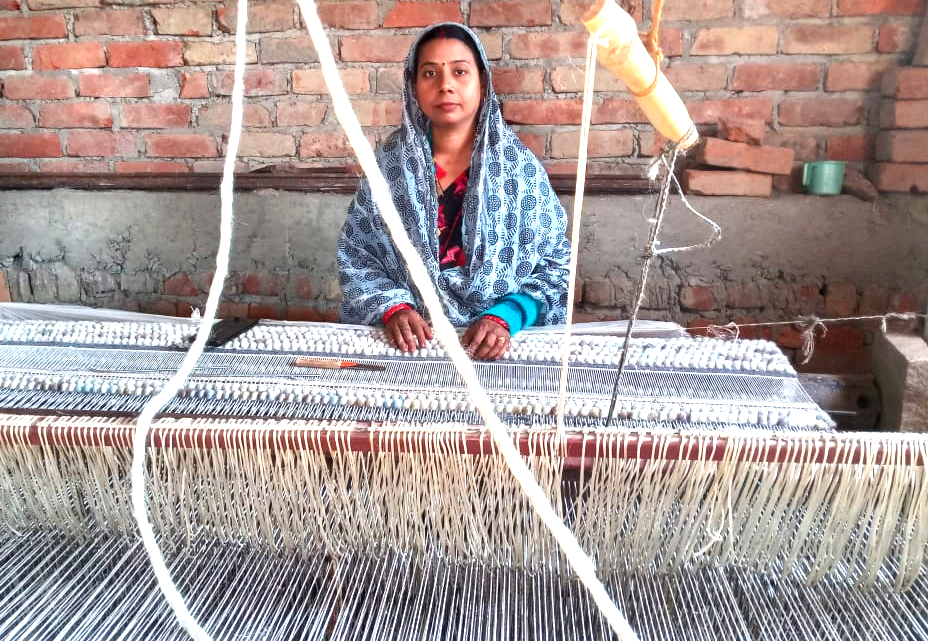
Pavan Kumar Maurya, TwoCircles.net
Chandauli (Uttar Pradesh): Shakeela Bano’s journey from a housewife to an entrepreneurial inspiration in her village, Katsil in Sakaldiha Tehsil, is one that exemplifies the power of determination. Faced with the challenges of a sudden job loss of her husband during the COVID-19 pandemic, she decided to turn adversity into opportunity by starting a home-based rug weaving business.
What began as a way to support her family has now evolved into a flourishing self-help group that is helping many women in her village achieve financial independence and self-reliance.
Shakeela’s Journey
"My husband used to work on a power loom in Varanasi, but during the pandemic-induced lockdown, he became unemployed. The challenges of running the family became significant. I was already running the 'Hariom Self-Help Group' in the village. I held meetings with the women in the group and got their consent to start rug weaving. After 20-22 days, we made our first income. After deducting expenses, each person received Rs 2,000," Shakeela, the president of the group, told TwoCircles.net.
[caption id="attachment_451374" align="aligncenter" width="937"]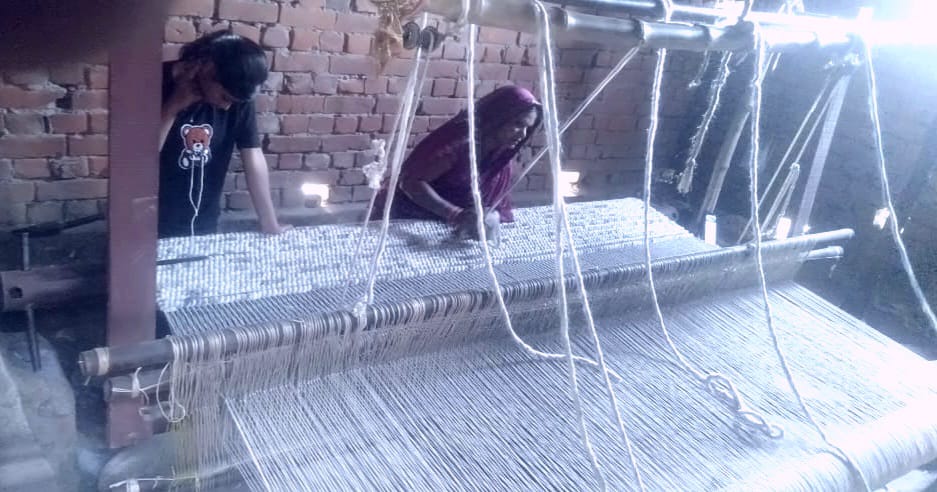 Young girls and women weaving carpet in Shakeela Bano's house[/caption]
Young girls and women weaving carpet in Shakeela Bano's house[/caption]
From then on, they worked with even more enthusiasm. Now, each woman member earns Rs 4,000-5,000 per month. The raw material for making one rug costs Rs 400. It involves labor costs another Rs 400. "We make 60-70 rugs and 150-170 mats per month, and each rug sells for Rs 1,100 rupees," she said.
In a region where unemployment and lack of opportunity have been longstanding issues, Shakeela’s determination to succeed sparked a change. Her initiative not only transformed her own life but also empowered others around her, especially women, by providing them with meaningful work that helped them earn an income, gain confidence, and become self-reliant.
Today, Shakeela’s business is a model of success, and her group has expanded to include men as well, offering them a chance to work alongside women in the rug weaving business.
[caption id="attachment_451371" align="aligncenter" width="1280"]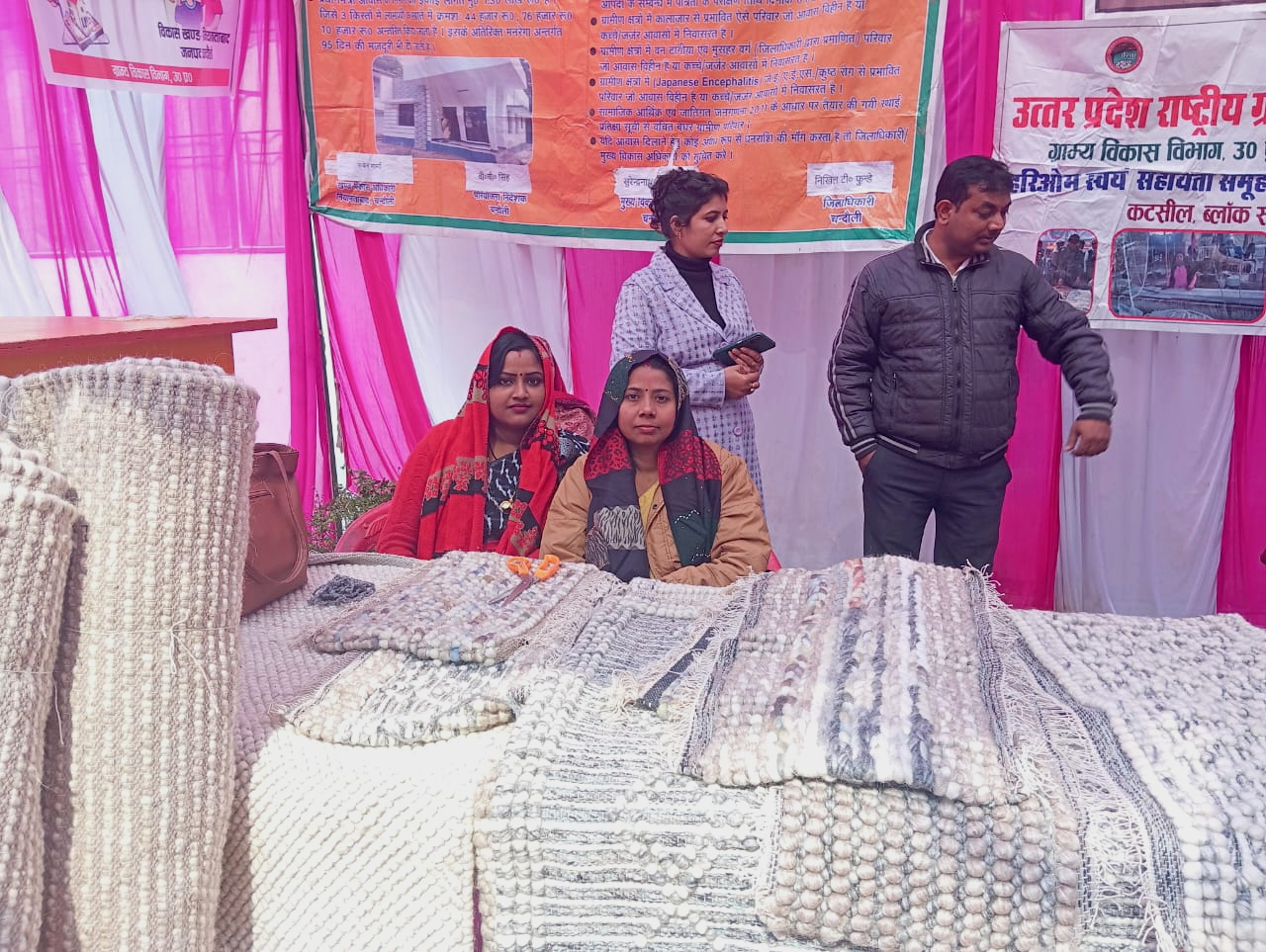 Hand products - carpets and rugs, on display in the Kastil village exhibition[/caption]
Hand products - carpets and rugs, on display in the Kastil village exhibition[/caption]
New Opportunities for Local Women, Youth
With timely payments, local women and unemployed young men started flocking to Shakeela's center. Initially, she had set up only two machines, but now, with two sets of 10 machines each, rug weaving work is progressing rapidly. She said she has recently purchased land and plans to install rug weaving machines there as well after arranging funds for the same.
Shakeela, a graduate and also a BC Sakhi or Bank Sakhi, further said, "Just 10 days ago, a district-level village industry exhibition was organised in the Niyamatabad development block by the district administration, where mats worth Rs 5,000 were sold. There is a high demand for small hand-woven mats that are sold for Rs 100-120 in local markets and district-level exhibitions. In addition to making mats here, women from half a dozen nearby villages are taking raw material and weaving mats at home to become self-reliant."
Chameli Devi, who is associated with the Nai Bazar Chameli Devi Self-Help Group and works in rug weaving, first learned weaving at Shakeela's workshop. After learning there, she set up three machines at home to weave mats. "I get raw materials from Shakeela didi (sister). After delivering the finished products to the traders, payment is made immediately. The better income from rug weaving is opening doors to prosperity," she said.
[caption id="attachment_451373" align="aligncenter" width="1040"]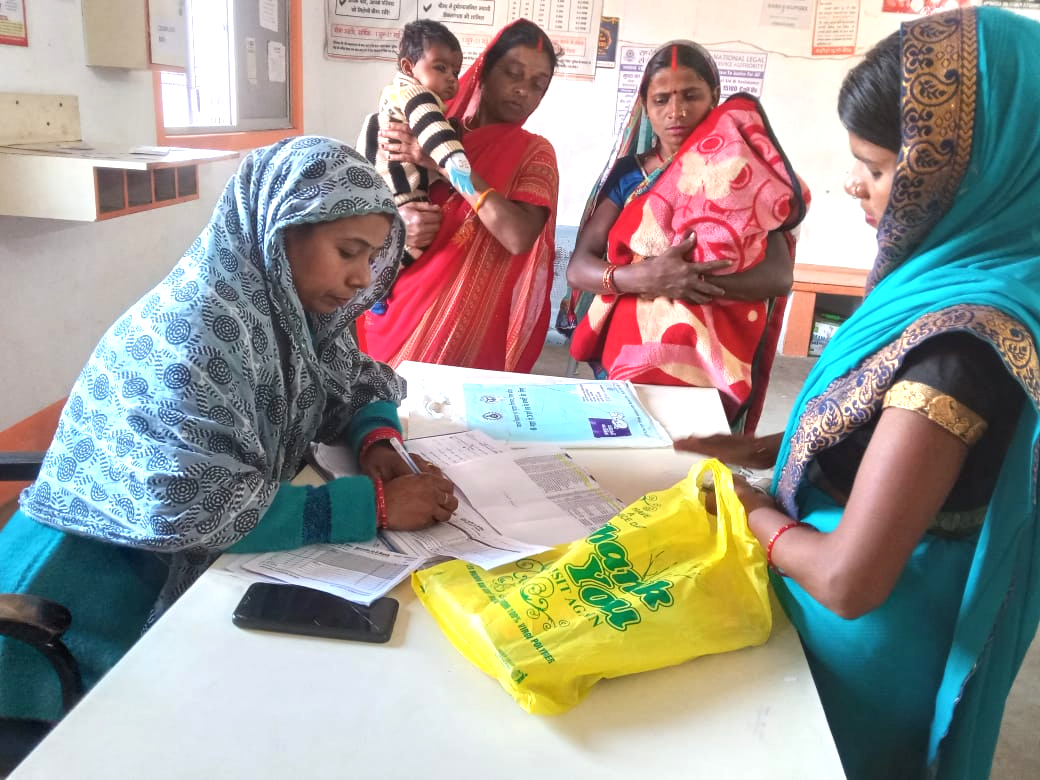 Shakeela depositing the money of the women of the group in the bank branch located in Nai Bazar.[/caption]
Shakeela depositing the money of the women of the group in the bank branch located in Nai Bazar.[/caption]
Support Systems, Market Integration
The availability of banking facilities and having a savings account for village dwellers is considered an essential indicator of development in rural economy. The women involved in the group deposit the income and savings from rug weaving in a newly established bank in the local market.
Shakeela also provides them with loans at low interest rates for their self-employment and necessary expenses.
Shakeela's husband, Raju Ansari, said they procure raw materials from Saiyadraja town, 10 kilometers from the Katsil village, without paying any sum in advance. "Anyone interested in making rugs can get raw materials and receive payment after delivering the finished products. From here, the rugs are sent to Bhadohi. They are then exported from Bhadohi to Gulf countries, Turkey, the United States, Russia and Europe," he said. The easy sale of products has boosted the pace of work and increased the enthusiasm of the workers. Due to rug weaving, the unemployment rate among the youth in his village has reduced.
[caption id="attachment_451372" align="aligncenter" width="1600"]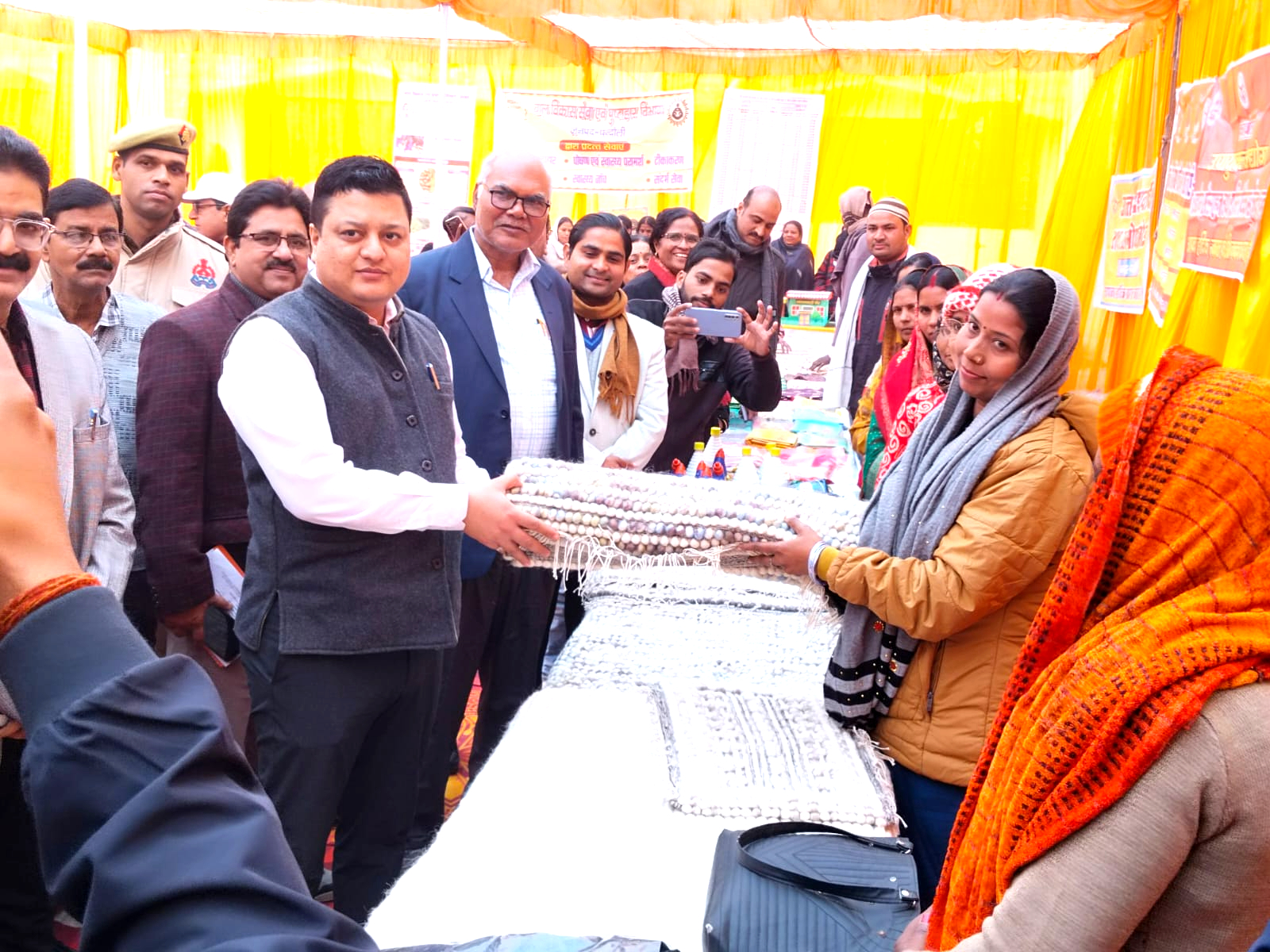 Chandauli District Magistrate Nikhil T Funde buying doormat from Shakeela Bano's stall in the exhibition[/caption]
Chandauli District Magistrate Nikhil T Funde buying doormat from Shakeela Bano's stall in the exhibition[/caption]
Traders from the carpet city of Bhadohi send raw materials to be woven into carpets (rugs) by village workers. This not only increases employment opportunities in the villages but also reduces the time required to complete the goods. The finished rugs are brought to Bhadohi, where they are given a final touch in factories before being prepared for the international market, where they are called carpets.
At the district-level village industry exhibition, Chandauli District Magistrate Nikhil Tikaram Funde appreciated Shakeela's home-based industry initiative and appealed to people, "The women, men and youth of the district can also earn a better income through self-employment and small industries and provide employment to others. The Government of Uttar Pradesh and the district administration are ready to offer all possible support."
(Pavan Kumar Maurya is an independent journalist. He tweets at @pavanmaurya17)
